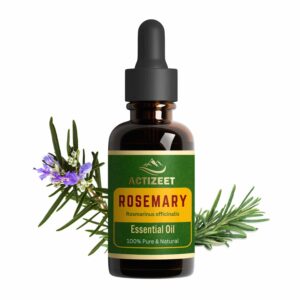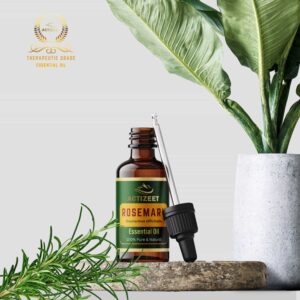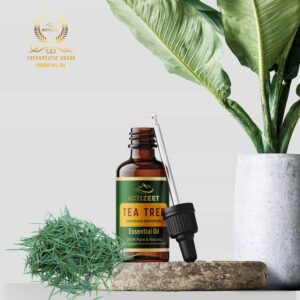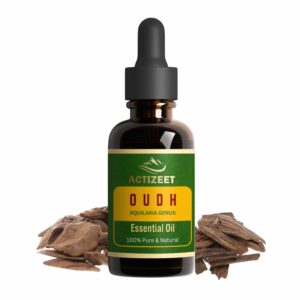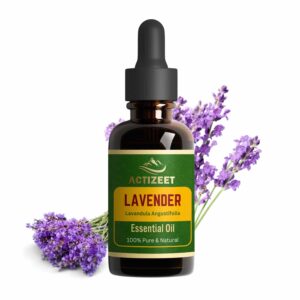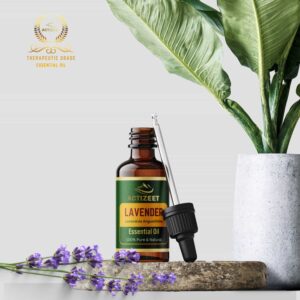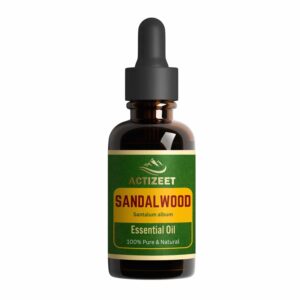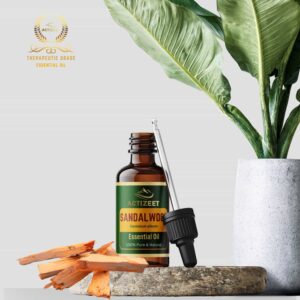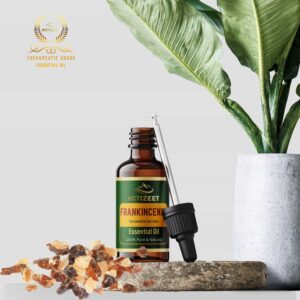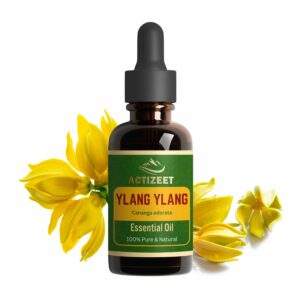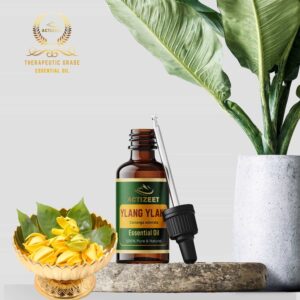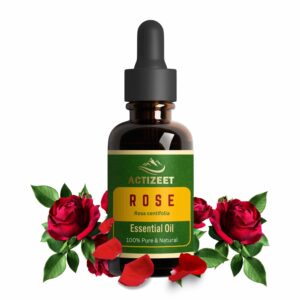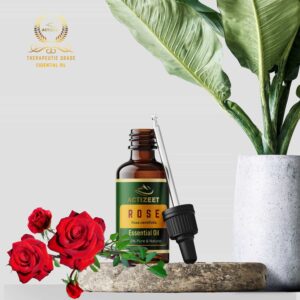Essential oils have gained immense popularity in recent years for their various health benefits, including stress reduction. But what exactly are essential oils?
Simply put, essential oils are highly concentrated liquids extracted from plants using a distillation or cold-pressing process. These oils capture the plant’s aromatic compounds, which give them their unique properties.
Essential oils have been used for thousands of years across different cultures and civilizations. Their usage dates back to ancient times, when they were revered for their therapeutic qualities.
In fact, the Egyptians were known to use essential oils in religious ceremonies and embalming practices. The Greeks and Romans also recognized the value of these plant extracts and incorporated them into their hygiene routines, perfumes, and holistic medicines.
Table of Contents
ToggleThe Historical Background of Essential Oils in Ancient Civilizations
Ancient civilizations were pioneers in understanding the power of essential oils. They recognized the profound impact these natural substances had on physical, mental, and spiritual well-being.
Let’s take a journey into history and explore how different cultures harnessed the potential of essential oils. In ancient Egypt, essential oils like frankincense and myrrh held significant cultural importance.
They were used in religious rituals, cosmetics, and even for embalming purposes. The Egyptians believed that these aromatic substances had healing properties that could connect them to the gods.
In Greece, renowned philosophers like Hippocrates explored the therapeutic potential of plants through distillation techniques. They understood that specific plant extracts could alleviate various ailments by restoring balance within the body.
The Romans embraced aromatherapy as well. They used fragrant oils derived from lavender, rosemary, and many other botanicals for massages and baths as a means to relax both the body and mind.
Understanding Stress and its Impact on Health
Definition and Causes of Stress
Stress is an inevitable part of life’s ups and downs, commonly experienced when we face challenging situations that exceed our ability to cope. It can be triggered by various factors, such as work-related pressures, financial instability, relationship issues, or even major life changes like moving or starting a new job. Essentially, stress occurs when the demands placed upon us surpass our perceived ability to handle them effectively.
Causes of stress can vary significantly from person to person. What may be a minor stressor for one individual could be a major source of anxiety for another.
Common sources of stress include heavy workloads, tight deadlines, conflicts in personal relationships, financial difficulties, health problems, and unexpected or traumatic events. It’s important to recognize that each individual may have their own unique set of stressors that contribute to their overall experience.
Physical and Psychological Symptoms of Stress
Stress can manifest in both physical and psychological ways. Physically, individuals experiencing stress may notice increased heart rate, rapid breathing or shortness of breath, tense muscles leading to headaches or body aches, digestive issues such as stomachaches or constipation, fatigue, or insomnia due to disrupted sleep patterns. Additionally, some people may experience changes in appetite or weight loss/gain as a result of stress-related hormonal imbalances.
Psychologically speaking, stress can take its toll on mental well-being too. It often leads to feelings of irritability or restlessness accompanied by difficulty concentrating on tasks at hand.
Heightened anxiety levels are not uncommon either; individuals facing chronic stress may constantly feel on edge and have difficulty relaxing, even in leisurely settings. Furthermore, prolonged exposure to high levels of stress has been linked with symptoms such as depression and mood swings.
It is crucial for individuals experiencing these symptoms to regularly acknowledge the presence of stress in their lives and seek effective coping mechanisms. By addressing stress proactively, we can mitigate its impact on our overall health and well-being.
The Science Behind Essential Oils for Stress Reduction
Aromatherapy: The Gateway to Relaxation
When it comes to stress reduction, essential oils have an incredible ability to impact our brain and nervous system. This magic lies in the power of aromatherapy. When we inhale the aromatic molecules released by essential oils, they travel through our olfactory system and directly access the limbic system in our brain – the area responsible for emotions, memory, and behaviour.
This direct connection is what makes essential oils such an effective tool for stress relief. Research has shown that specific compounds found in essential oils stimulate certain receptors in our brain, triggering a cascade of reactions that can induce relaxation and reduce anxiety levels.
For instance, lavender oil contains a compound called linalool, which has been found to have sedative effects on the central nervous system. Similarly, citrusy scents like bergamot oil can boost mood and alleviate tension by activating neurochemicals like serotonin and norepinephrine.
Backed by Scientific Studies
As essential oils continue to gain popularity as natural remedies for stress reduction, researchers have conducted numerous studies examining their efficacy. One study published in the Journal of Alternative and Complementary Medicine investigated the effects of inhalation aromatherapy using lavender oil on participants suffering from generalized anxiety disorder (GAD). The findings revealed a significant reduction in anxiety levels among those who used lavender oil compared to the control group.
Another study published in Nursing Practice & Research explored the impact of bergamot oil on physiological indicators of stress before a coronary angiography procedure. Participants exposed to bergamot oil experienced lower heart rates and blood pressure compared to those who did not receive any aromatherapy intervention.
These studies provide strong evidence supporting the effectiveness of essential oils as an adjunctive therapy for stress relief. While it’s important to note that individual responses may vary, incorporating essential oils into your stress-reduction routine can potentially yield significant benefits for promoting relaxation and emotional well-being.
The Power of Aromatherapy: Top Essential Oils for Stress Reduction
Lavender Oil: Benefits, Usage, and Calming Properties
When it comes to easing stress and promoting relaxation, lavender oil reigns supreme. Known for its delicate floral scent, lavender has been used for centuries to soothe the mind and body.
The secret lies in its chemical compounds, such as linalool and linalyl acetate, which have been shown to possess sedative properties that help reduce anxiety levels and induce a sense of calmness. Incorporating lavender oil into your daily routine couldn’t be easier!
One popular method is adding a few drops to your bathwater for a luxurious evening soak. The warm water combined with the aromatic essence will work wonders at melting away stress.
Alternatively, you can use a diffuser to fill your home or office with the soothing scent of lavender throughout the day. Another option is to create a homemade linen spray by mixing lavender oil with water in a small spray bottle; Lightly spritzing your pillows before bedtime can enhance relaxation and promote better sleep.
Chamomile Oil: Soothing Properties and Its Impact on Stress Levels
If you’re seeking tranquillity in a bottle, look no further than chamomile oil. This gentle yet potent essential oil is widely recognized for its ability to alleviate stress-induced tension and promote overall well-being. Chamomile oil comes in two main varieties: Roman chamomile (Anthemis nobilis) and German chamomile (Matricaria chamomilla), each offering unique benefits.
Roman chamomile is known for its calming effects on both the mind and body. It has anti-inflammatory properties that can help reduce muscle soreness caused by stress or tension built up over time.
You can create an aromatic massage blend by diluting Roman chamomile oil with a carrier oil, such as jojoba or almond oil, and gently massaging it onto your temples, neck, or shoulders. On the other hand, German chamomile possesses powerful anti-anxiety properties that can help ease racing thoughts and promote relaxation.
Diffusing a few drops of German chamomile oil in your home or workspace can create a serene atmosphere that aids in reducing stress levels. Additionally, you can enjoy the benefits of chamomile by indulging in a warm cup of chamomile tea before bedtime to calm your mind and prepare for a restful sleep.
Bergamot Oil: Uplifting Aroma and Anxiety-Reducing Effects
When stress has you feeling down, bergamot oil is here to uplift your spirits and melt away anxiety. This citrusy essential oil is derived from the rinds of bergamot oranges and boasts a delightful aroma that instantly brightens any environment. But its effects go beyond just its pleasant scent – bergamot contains unique components such as limonene and linalool, which have been found to possess anxiety-reducing properties.
Harnessing the benefits of bergamot oil is simple yet effective. You can create an invigorating massage blend by combining a few drops of bergamot oil with a carrier oil like coconut or jojoba; gently massage it into your skin for an uplifting experience that promotes relaxation.
Another way to enjoy this aromatic wonder is by using an essential oil diffuser; Let the sweet scent diffuse into the air around you to create a calming ambiance throughout the day. Remember, when using essential oils for stress reduction techniques like inhalation or topical application, it’s important to dilute them properly with suitable carrier oils and conduct patch tests if you have sensitive skin.
With these top three essential oils—lavender, chamomile, and bergamot—at your disposal, you have a natural arsenal to combat stress and promote serenity in your life. Take a deep breath, inhale their therapeutic aromas, and let the soothing power of nature wash away your worries.
Other Lesser-Known Essential Oils for Stress Relief
Cedarwood oil: Grounding properties and its ability to reduce tension
While lavender and chamomile oils may steal the spotlight when it comes to stress relief, it’s important not to overlook the power of cedarwood oil. Derived from the bark of the majestic cedar tree, this essential oil possesses remarkable grounding properties that can help alleviate feelings of anxiety and tension.
The earthy fragrance of cedarwood has a soothing effect on the mind, helping to promote a sense of calm and stability. One of the key reasons why cedarwood oil is effective in reducing stress is its ability to stimulate the release of serotonin in the brain.
Serotonin is a neurotransmitter known for its mood-regulating properties, which help combat feelings of unease or restlessness often associated with stress. Furthermore, cedarwood oil contains cedrol, a compound renowned for its sedative effects that can induce relaxation and improve sleep quality.
Innovative ways to utilize cedarwood oil in stress reduction
When it comes to incorporating cedarwood oil into your stress-reducing routine, there are various innovative methods you can explore. One popular approach is by using an essential oil diffuser. Simply add a few drops of cedarwood oil into your diffuser along with water, and let the aromatic mist fill your space.
This not only creates a calming ambience but also allows you to inhale the therapeutic scent for maximum benefits. If you prefer direct application, diluting cedarwood oil with a carrier oil such as jojoba or coconut oil allows you to create massage blends or soothing body oils.
Gently massaging these oils onto tense areas like your neck, shoulders, or temples can provide targeted relief from stress-induced muscle tension. Additionally, mixing a few drops of cedarwood oil with a carrier oil and adding it to your bathwater can create a luxurious and relaxing experience, helping you unwind after a long day. Remember, it is essential to conduct a patch test before using any essential oil topically and consult with a healthcare professional if you have any specific health concerns or conditions.
Essential Oil Blends for Optimal Stress Relief
The synergy between different essential oils in a blend
When it comes to enhancing the stress-relieving potential of essential oils, blending them together can create a powerful synergy. Combining different oils allows their unique properties to complement each other, resulting in a more holistic approach to stress reduction. For instance, mixing lavender oil with bergamot oil can enhance the calming effects of both oils due to their overlapping abilities to promote relaxation and alleviate anxiety.
Similarly, combining chamomile oil with cedarwood oil creates a blend that not only soothes the mind but also helps reduce tension in the body. The key is finding the right combinations that work best for you.
Popular blends are known for their stress-reducing qualities
There are several popular essential oil blends renowned for their exceptional stress-reducing qualities. One such blend is “Calm and Tranquil,” which combines equal parts of lavender, chamomile, and frankincense oils.
This soothing blend helps create an environment conducive to relaxation and tranquillity. Another popular option is “Stress Relief Fusion,” which includes bergamot, geranium, and ylang-ylang oils.
This invigorating blend uplifts mood while reducing anxiety levels. For those seeking an earthy aroma combined with stress relief benefits, “Grounding Harmony” is an excellent choice.
This blend combines cedarwood, vetiver, and patchouli oils to promote a sense of stability and grounding during stressful times. These blends can be used in diffusers or added to carrier oils for massages or bath rituals.
Conclusion
In today’s fast-paced world, finding effective ways to manage stress is paramount for maintaining optimal well-being. Essential oils provide a natural solution that not only calms the mind but also nourishes the body.
Through their aromatic and therapeutic properties, oils like lavender, chamomile, bergamot, cedarwood, and many others hold the power to alleviate stress and promote relaxation. By incorporating essential oils into our daily routines through diffusion, topical application, or even inhalation, we can create a sanctuary of tranquility amidst the chaos.
So why not take a moment to indulge in the captivating scents of nature’s gifts? Embrace these aromatic wonders as you embark on a journey towards achieving inner peace and serenity in your life.
Remember that self-care is an essential investment in your overall well-being. Relish in the power of essential oils to reduce stress and live your life to its fullest potential.
RECOMANDED PRODUCTS
-
Rated 4.72 out of 5
₹1,500.00Original price was: ₹1,500.00.₹1,200.00Current price is: ₹1,200.00. Incl. GST ADD TO CART Buy Now -
Rated 4.88 out of 5
₹1,500.00Original price was: ₹1,500.00.₹1,200.00Current price is: ₹1,200.00. Incl. GST ADD TO CART Buy Now -
Rated 4.63 out of 5
₹1,900.00Original price was: ₹1,900.00.₹1,450.00Current price is: ₹1,450.00. Incl. GST ADD TO CART Buy Now -
Rated 4.74 out of 5
₹1,500.00Original price was: ₹1,500.00.₹1,200.00Current price is: ₹1,200.00. Incl. GST ADD TO CART Buy Now -
Rated 4.72 out of 5
₹2,500.00Original price was: ₹2,500.00.₹1,950.00Current price is: ₹1,950.00. Incl. GST ADD TO CART Buy Now -
Rated 4.88 out of 5
₹1,500.00Original price was: ₹1,500.00.₹1,200.00Current price is: ₹1,200.00. Incl. GST ADD TO CART Buy Now -
Rated 4.80 out of 5
₹1,500.00Original price was: ₹1,500.00.₹1,200.00Current price is: ₹1,200.00. Incl. GST ADD TO CART Buy Now -
Rated 4.88 out of 5
₹1,500.00Original price was: ₹1,500.00.₹1,200.00Current price is: ₹1,200.00. Incl. GST ADD TO CART Buy Now
Related posts:
- Revitalize Your Skin with Essential Oil: The Ultimate Guide
- Essential Oil for Face: The Ultimate Guide
- The Ultimate Guide: Best Essential Oil for Face
- Headache Relief: Discover Effective Essential Oils
- Discover Top Essential Oils for Back Pain Relief
- Unlocking the Potential: Essential Oils for Diabetes Relief
- Nerve Damage Relief: Best Essential Oil for Nerve Health
- Relieve Itching: Best Essential Oil for Skin – Expert Guide


